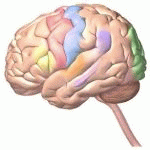Neurology
|
18 april 2012 14:02:31 |
| Inhibition of P2X7 receptor ameliorates transient global cerebral ischemia/reperfusion injury via modulating inflammatory responses in the rat hippocampus (Journal of Neuroinflammation) |
|
Tweet Background:
Neuroinflammation plays an important role in cerebral ischemia/reperfusion (I/R) injury. The P2X7 receptor (P2X7R) has been reported to be involved in the inflammatory response of many central nervous system diseases. However, the role of P2X7Rs in transient global cerebral I/R injury remains unclear. The purpose of this study is to determine the effects of inhibiting the P2X7R in a rat model of transient global cerebral I/R injury, and then to explore the association between the P2X7R and neuroinflammation after transient global cerebral I/R injury.
Methods:
Immediately after infusion with the P2X7R antagonists Brilliant blue G (BBG), adenosine 5` -triphosphate-2` ,3` -dialdehyde (OxATP) or A-438079, 20 minutes of transient global cerebral I/R was induced using the four-vessel occlusion (4-VO) method in rats. Survival rate was calculated, neuronal death in the hippocampal CA1 region was observed using H & E staining, and DNA cleavage was observed by deoxynucleotidyl transferase-mediated UTP nick end labeling TUNEL). In addition, behavioral deficits were measured using the Morris water maze, and RT-PCR and immunohistochemical staining were performed to measure the expression of IL-1beta, TNF-alpha and IL-6, and to identify activated microglia and astrocytes.
Results:
The P2X7R antagonists protected against transient global cerebral I/R injury in a dosage-dependent manner. A high dosage of BBG (10 ug) and A-0438079 (3 ug), and a low dosage of OxATP (1 ug) significantly increased survival rates, reduced I/R-induced learning memory deficit, and reduced I/R-induced neuronal death, DNA cleavage, and glial activation and inflammatory cytokine overexpression in the hippocampus.
Conclusions:
Our study indicates that inhibiting P2X7Rs protects against transient global cerebral I/R injury by reducing the I/R-induced inflammatory response, which suggests inhibition of P2X7Rs may be a promising therapeutic strategy for clinical treatment of transient global cerebral I/R injury. |
| 135 viewsCategory: Neurology |
 [Editorial] A decade at the forefront of clinical neurology (Lancet Neurology) [Editorial] A decade at the forefront of clinical neurology (Lancet Neurology)Neuroprotection by the histone deacetylase inhibitor trichostatin A in a model of lipopolysaccharide-sensitised neonatal hypoxic-ischaemic brain injury (Journal of Neuroinflammation) 
|
| blog comments powered by Disqus |
MyJournals.org
The latest issues of all your favorite science journals on one page
The latest issues of all your favorite science journals on one page



